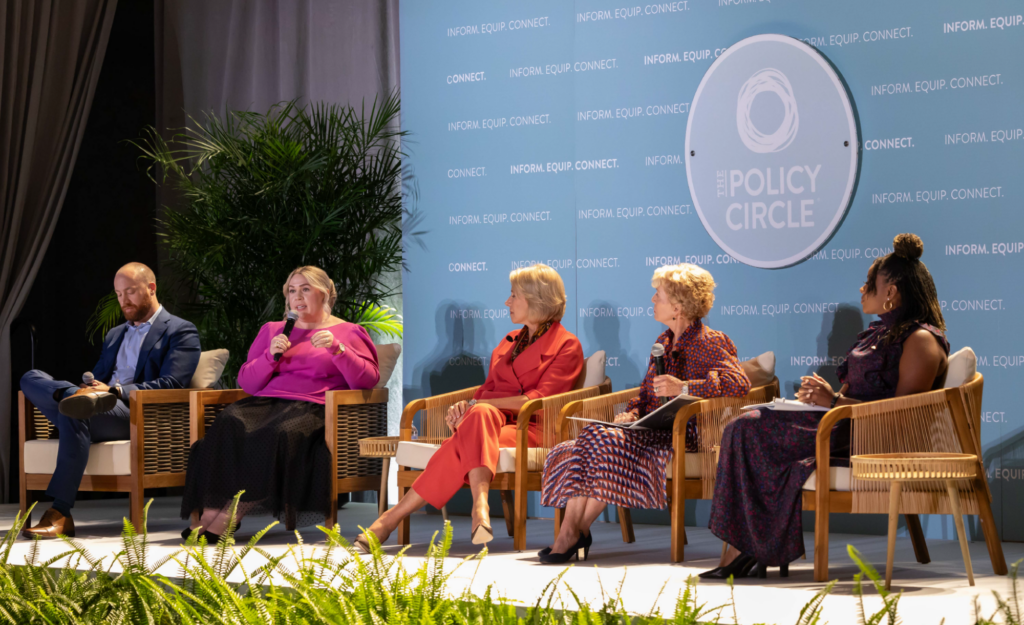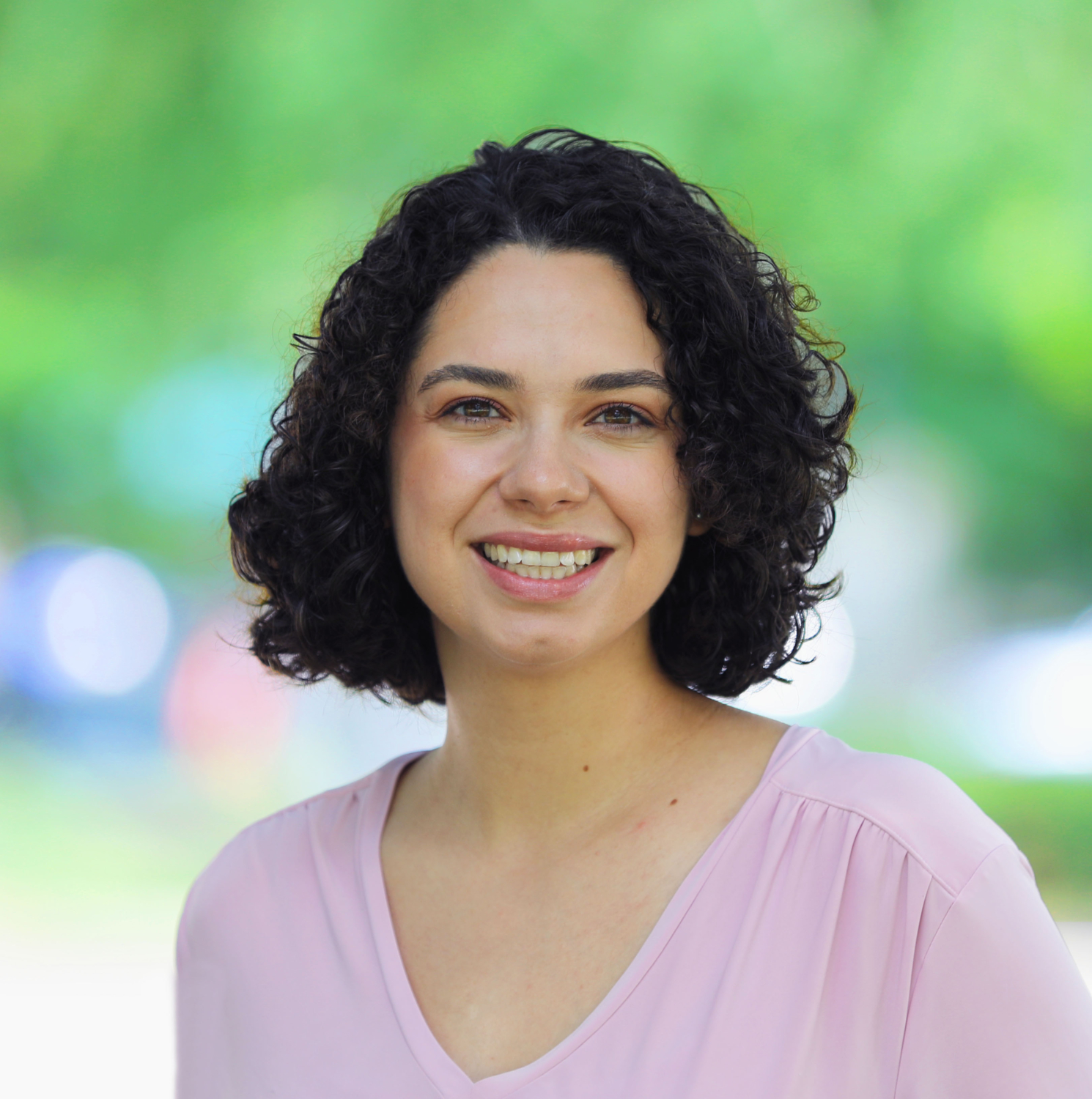How the Pandemic Created a “Tsunami” of Choice
It has been a monumental year for school choice in America as the number of states with universal or near-universal private school choice programs has grown to 10. The power of the expanding choice landscape and the policies that unleash their transformative potential was the topic of discussion at The Policy Circle’s recent Annual Leadership Summit.
EdChoice Vice President of Communications, Chantal Lovell Fennell joined Former Secretary of Education Betsy Devos; Senior Fellow at the American Federation for Children and Black Minds Matter founder Denisha Allen; and Ross Izard, Vice President of Policy and Government Affairs at ACE scholarships on the panel to discuss how the school choice movement has been supercharged in recent years.
Devos kicked off the conversation touching on how the pandemic became the conduit for school choice expansion.
“Parents had a front row seat to see what was happening in their child’s or children’s education world. Whether it was in their living room or kitchen, they saw on the screen what was or wasn’t happening. And many of them were very unhappy with what they discovered,” DeVos said.
“Whether it was a lack of rigor and, or expectations with a distance learning plan, or the curriculum for one reason or another, it really opened the eyes of parents who thought their kids were in good places before. And as a result, we have seen parents wanting to reassert their right as their child’s first educator to have a much greater say over their child’s education and their children’s futures. So that has kicked off a lot of activity and momentum. I like to call it a ‘tsunami’ in education.”
In 2023, lawmakers in 40 states debated 111 educational choice bills—79 percent of which related to education savings accounts. So, the conversation switched gears to discuss what ESAs are and how the pandemic helped them gain popularity.
“An education savings account is a government-authorized parent-controlled account that allows families to pay for all of the options that they may want to choose outside of the public system,” said Chantal Lovell Fennell.
“It functions very similar to a health savings account where you typically have a debit account and you can pay for authorized expenses from traditional options, like a private school, a tutor, something online to options we haven’t even thought of.”

EdChoice Vice President of Communications Chantal Lovell Fennell speaks on a panel at Policy Circle’s recent Annual Leadership Summit.
When considering how the pandemic affected the expansion of school choice policies, Lovell Fennell invoked a quote from EdChoice founder and Nobel-Prize economist Milton Friedman.
“He famously said ‘Only a crisis, actual or perceived, produces real change. And when that crisis occurs, the change that happens come as a result of the ideas that are laying around.’ Arizona enacted the first ESA program 20 years ago, but it was not really until the pandemic that started people started to realize that this old idea of ESAs could be a conduit to restoring parental control over their children’s learning,” she said.
“In 2022, Arizona expanded its program to include all students. And later that year, West Virginia’s Universal ESA program was ruled constitutional,” Lovell Fennell said. “When legislators met this year for their session, they did so with the knowledge that universal school choice was not only politically possible but legally sound. That’s where we sort of got that tsunami coming from as a result of seeing that happen. Overnight, families became homeschooling families, and that experience demonstrated the power of customizing a student’s education and unbundling the way learning is delivered.”
Moderator Kathy Hubbard, co-founder of The Policy Circle, transitioned the conversation to learn about the impact occurring at the state level with Ross Izard, Vice President of Policy and Government Affairs at ACE scholarships.
“ACE scholarships is a nonprofit, private scholarship-granting organization that gives scholarships to lower income kiddos who would like to attend K-12 private schools but can’t afford to do so. We currently have 14,000 kids on scholarship in 12 states and about 1000 partner private schools. Since 2000 have given out 81,000 scholarships worth about $217 million. And it’s been great to watch,” Izard said.
Izard highlighted that it’s critical to remember that behind every data point, test score, graduations rate are real families whose lives are being changed dramatically with the freedom to customize their educational options.
“I think one of the most interesting things about being is being able to watch the way school choice plays out in different places. So, in some cases, we’re working through established school choice programs where we’re carefully monitoring results in terms of proficiency rates, graduation rates.” Izard said.
“But I think the real story of ACE and the real success has been going out and gathering stories from the parents of those that we’ve helped so far. Being able to go out and talk to the folks that have received one of these 81,000 scholarships and hearing about the difference that it’s made in their life from an education standpoint, the difference that it’s made in their life from a long-term standpoint, and then thinking through how that’s going to have this sort of ripple effect on their family — we hope for generations — has really been the primary proof point for the model.”
Denisha Allen, founder of Black Minds Matter talked about how school choice has changed her life.
“This is near and dear to me because I’ve benefited from school choice in Jacksonville, Florida. I received a tax credit scholarship to go to a private school from sixth to 12th grade, and it changed my life. That sounds cliché, but it actually, it did. I failed the third grade twice because I couldn’t read. I wasn’t reading on grade level and I was destined to be high school dropout until I had the opportunity to go to this small private school on the north side of Jacksonville. And that’s when everything changed,” Allen said.
“I began to share my story and think: ‘I am not that special, so why was my life story so different?’ And it was because of the education opportunity that I received. I want to see that every kid receives that opportunity. People in neighborhoods like where I grew up, they’re relegated to poor performing schools, poor building conditions, sometimes unqualified teachers. And that’s unacceptable, especially when there is a feasible alternative for students to go to a school of their parents’ choice to get a better education.”
Looking ahead, Chantal Lovell Fennell recounted some of the most exciting innovations happening in the choice space.
“We realize that not every state is primed to enact these broad school choice programs that we’ve been seeing. So, at EdChoice, we started looking to see if there are states that are doing something that doesn’t require broad policy reform,” Lovell Fennell said.
“We stumbled upon Montana, which through public-private partnerships has created a really robust workforce development program by giving students credit for participating in internships or on the job training. Now, 40% of Montana students are graduating with a certificate that prepares them for adulthood. And so, I think when we’re looking at innovation, we need to be thinking about the solutions that really prepare the student to go on and be successful adults.”
Advancements in innovation and access give cause for hope of how far the school choice movement can go.
“We now have some of the lowest scores in math and reading in decades. Why do we insist on spending more and more resources and expect different results? The silver lining to COVID was that the rest of America awakened to what had been going on for decades,” Devos said.
“It’s exactly why we have been advocating for a complete change in policy. It’s difficult to get accomplished, but I go back to my great optimism and excitement for the momentum that developed. And, I attribute [that] largely to all of the ground work that was done [to advance choice].”




